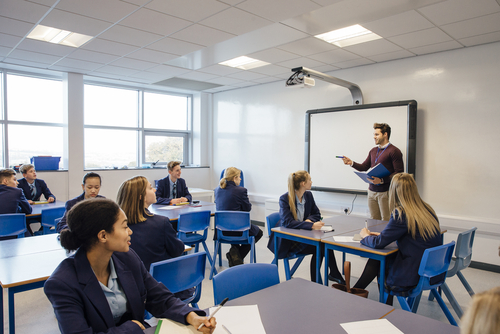
As an elite athlete, I have developed many techniques which have been successful in coping with the extreme pressure of competing against the world’s greatest athletes. Applying these techniques to my university and school education enabled me to meet the real stress of taking exams and completing assignments more effectively than my peers. Without training, nerves can seriously hinder performance when taking an exams or completing assignments and therefore much more needs to be done to help manage these high pressure situations.
The pressure that teachers are exposed to and expected to cope with can be immense, and the inability to deal with stress is significantly associated with failure. Therefore it is crucial that teachers tackle the demands of their career in order to ensure optimal performance for both themselves and their students. The impact that you as a teacher can have on your students is profound. Whilst this can be extremely beneficial, there are times when your behaviour can actually prevent pupils from achieving what they are capable of, doing both themselves and you a disservice. Additional pressure placed on students makes it even more difficult to cope with the mounting wall of stress they already face, feeling that they need to succeed not only for their sake but because the school’s reputation depends on them getting good results. Thus it is crucial to develop effective strategies to ensure that your behaviours are positively impacting on students behaviours.
The stages below are designed to help you become more aware of how your actions can influence your student’s behaviour and how to make small changes that will have a positive impact.
1) Awareness – Become more aware of what you say and how you say it! Your anxiety can become contagious, transferring to your pupils and increasing the amount of pressure they feel they are under. Body language is significant in the communication process, and often subconscious so you can communicate your worries without even realising it. If the person teaching the course is stressed then shouldn’t they be worried about it too? Once you recognise when you are showing signs of nervousness it becomes easier to do something about it! Relax, be confident and enjoy.
2) Language – Use positive language when addressing your students and encourage them to do the same. Instead of saying “Don’t worry about…”, phrase it as “Remember to concentrate on…” because having a positive approach focuses the student’s attention in the right direction.
3) Acknowledge – Make your students aware that you know they are under pressure. Just talking about it and letting them know they aren’t alone goes a little way towards helping them deal with exam nerves.
4) Preparation – Preparation is hugely important and students will be more confident if they go into an exam knowing that they have done everything possible to prepare themselves. Concentrating on the process is far more productive than worrying about the outcome because it allows both you and your students to feel more in control, focusing on how to achieve results without fearing failure.
5) Expectations – Applying realistic expectations to each student is crucial in order to ensure they are performing to the best of their ability. Placing too low an expectation can result in underachieving, but if expectations are too high then students may find it difficult to deal with the perceived added pressure and can lead to them potentially burning under the pressure.
When implemented, these strategies reduce a huge portion of the external stress that students feel they are under. This goes a way towards lessening the risk of them underperforming in exams and other important assignments, and also has a positive impact on their wellbeing. Furthermore, you may find that this will help you to cope with the tremendous pressure inherent within the teaching profession.
Danielle Brown
Double Paralympic gold medallist in archery and three time World Champion


